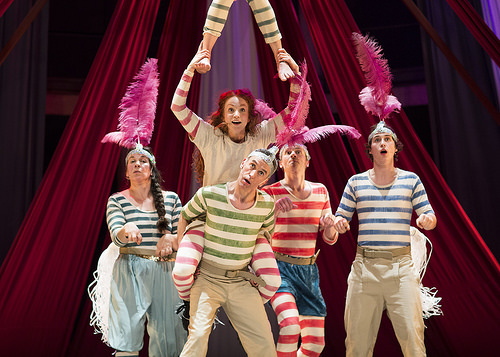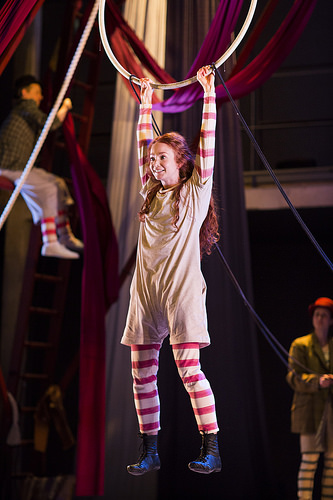
I am not, on the face of it, a natural candidate for reviewing children’s shows. I don’t really know any children although I did go to school with some, so I think that establishes my credentials a little bit.
Although, why should we differentiate between children’s theatre and adult theatre? Surely the only criteria should be whether the shows are good or bad. Bad children’s theatre doesn’t take on a mantel of worth just because it’s for youngsters. The aims of any type of theatre should always be the same – to entertain, to inform, to be stimulating, to be truthful, to be thought-provoking and lots more besides. It should never patronise, it should never talk down.
Children’s theatre should address issues which children will understand and help them with issues with which they are perhaps not yet familiar. And perhaps, most important of all, will introduce them to the joys of going to the theatre and hopefully instil in them a life-long passion for doing so.
Jacqueline Wilson’s Hetty Feather addresses issues which are fundamental to every child’s existence – belonging and having a sense of identity and worth. The story starts with a baby being dumped at the Foundlings’ Hospital by a mother who cannot cope. The baby is arbitrarily given a name and a uniform but everything else is taken away. But Hetty, as she is now called, rebels. But I’m sure you all know the story, or your kids will.
The dreadful thing is that the Foundling Hospital is still within touching distance. I have a friend, a quite well-known actress now in her eighties, who is sometimes approached by people supposing they might be related because of their shared, unusual surname. The actress is always quick, abrupt even, to deny the possibility, often to the surprise and affront of the person. The reason the actress is so sure is that her father was a Coram boy (as they were known) and, like Hetty, was arbitrarily given the next available name in the register. But I digress.
Awful things happen to children in care to this very day, as we all know. Hetty Feather, rather like much of Dickens (who coincidentally lived just round the corner from the Hospital), informs and educates us to the horrors of what such a life can mean. But it does so with humour, optimism and a few circus tricks and demonstrates that we can survive. It proves that one of our most powerful assets is our will and our ability to assert ourselves as individuals.
Hetty Feather is a beautifully staged show. The set is like a circus ring with ropes, drapes, ladders and trapezes. It is these that enable Hetty to experience her young world, to climb trees and ride horses when she is fostered out to a farm before being returned, at the age of six, to a life behind locked doors. The set also becomes the sinister walls of the grim Foundling Hospital. The cast of six plus two musicians (who manage to sound like a full orchestra) take on dozens of guises. They are all excellent but obviously Phoebe Thomas as the feisty Hetty, warrants a special mention as does Matt Costain who switches from goody to baddy with the quick donning of a white bonnet.
Sally Cookson, whose The Boy Who Cried Wolf at the Bristol Old Vic last year was sensational, is a director who understands theatre and understands that children should not be talked down to. She understands that it is not necessary to adopt Technicolor costumes and coochy-coo voices in order to entertain them and that they deserve the same respect as any theatre-going audience.
Hetty Feather deals with important issues which are as prevalent today as they ever were but what is more, and perhaps most importantly, Hetty Feather is powerful theatre, not powerful children’s theatre, powerful theatre, full stop. It is also a story of hope and fulfillment. Those, of any age, who see Hetty Feather will come away uplifted, informed and entertained by a piece of great theatre for which all concerned should be truly proud. ★★★★☆ Michael Hasted


